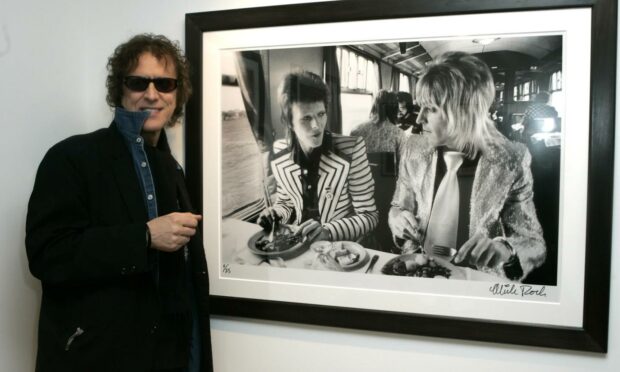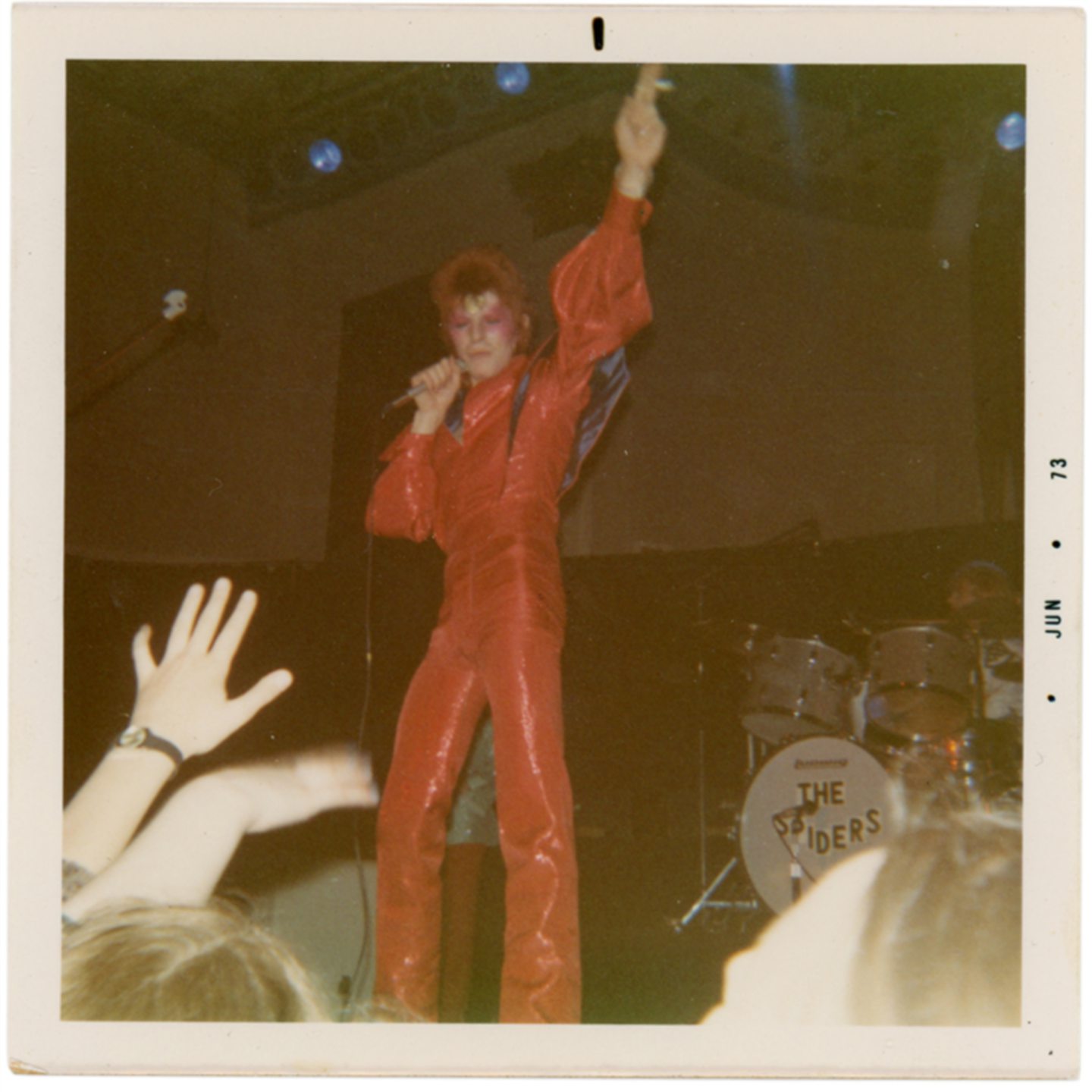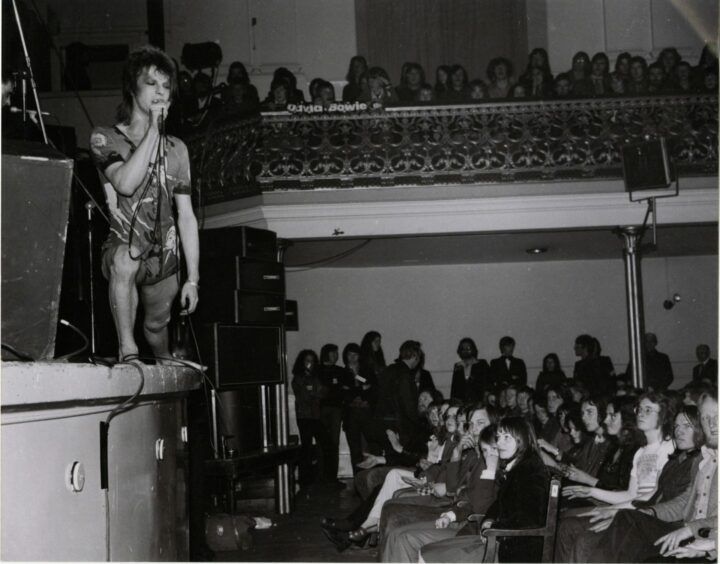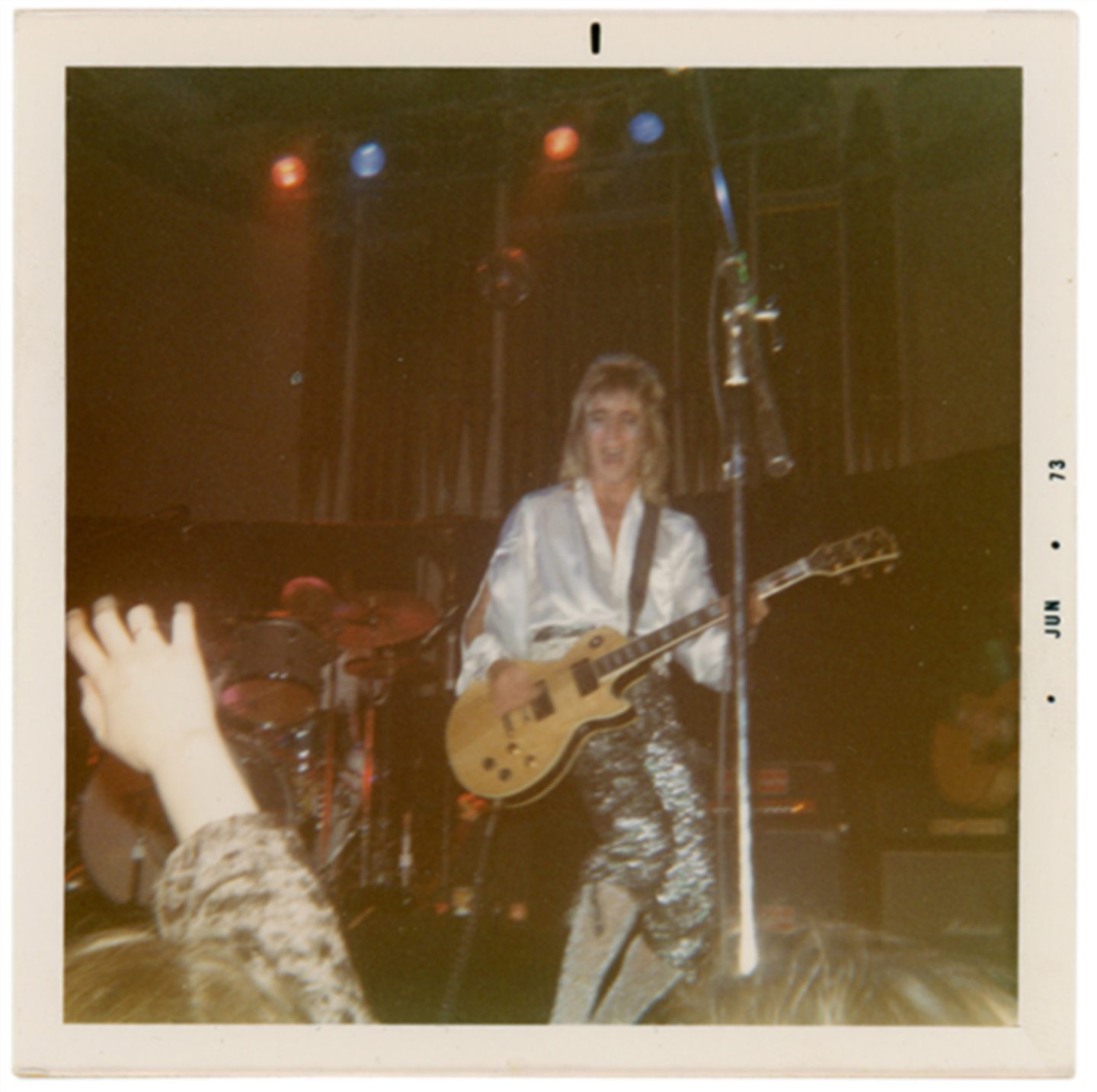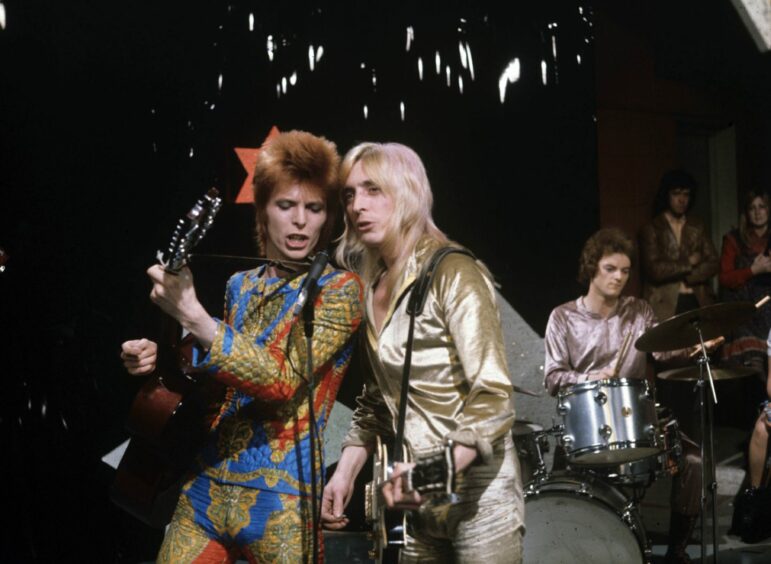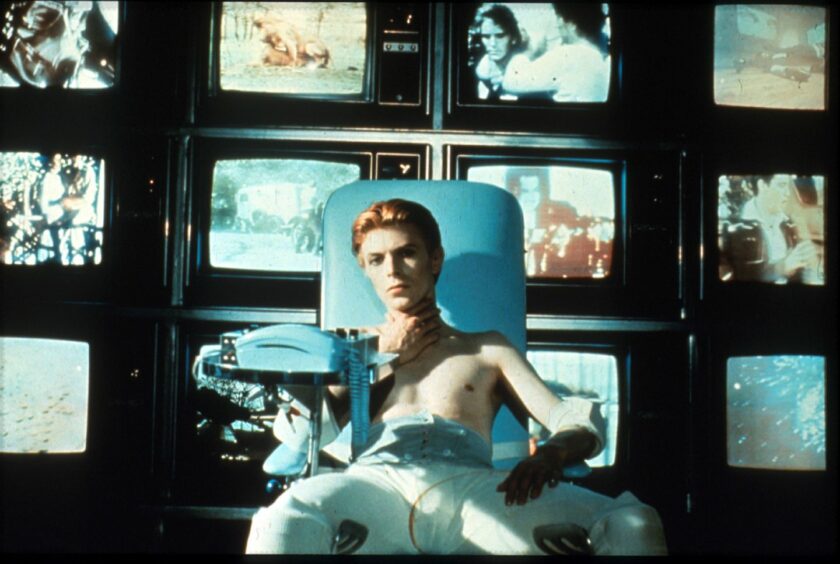Most rock stars wouldn’t dream of travelling on public transport as they made their way to concerts in the 21st Century.
Think of all the security concerns or the fact that every fan with a mobile phone at their convenience would soon be demanding selfies and tweeting about their close encounter with rock royalty to the wider world.
But there was none of that 50 years ago when the likes of David Bowie and Mick Ronson made the journey on a British Rail service to Aberdeen and a concert at the city’s Music Hall in May 1973.
The photographer, Mick Rock, who died on November 18 and who was known as “the man who shot the ’70s”, was also on the train as the distinctive duo tucked into breakfast with a big smile on their face.
And even while they enjoyed their sausages and eggs, Rock brought home the bacon with a striking image that captured the era perfectly.
After originally being commissioned to produce a photojournalism feature by the London office of Rolling Stone, Rock went to a Bowie gig at Birmingham Town Hall in March 1972 and soon became friends with the glam rocker, just as he was metamorphosing into the persona of Ziggy Stardust.
In the next five years, he was granted remarkable access to a number of the biggest emerging names in pop music and the underground scene in Britain and the United States.
Bowie’s performance was electric, it was theatrical – and that is an understatement – and Mick Ronson was amazing on the guitar.”
Graeme Thain
Rock created myriad memorable photographs of Bowie, Queen, Lou Reed, Debbie Harry, The Ramones, Iggy Pop… all of it achieved because of the trust that developed between him and these icons.
He earned his reputation through an infinite regard for his craft, but refused to force himself into the limelight.
He knew who the stars were and didn’t try to muscle in on any of the fame that greeted Bowie wherever he ventured.
And that’s why there’s something immortal about that Aberdeen train picture.
Once Bowie and Ronson had arrived in the Granite City, they performed one of the most historic gigs that ever took place at the Music Hall on May 16.
This was a night which will never be forgotten by the audience, although Ziggy Stardust made more of an impression on his young fans than with the Press & Journal reporter Hamish Mackay, who covered the event.
The headline might have read “Wowie, it’s Bowie”, and the youngsters in the crowd may have signalled their adulation for the singer-songwriter’s new work, but the review seemed to suggest he was the man who fell to earth.
Judge for yourself. “(There was) fan frenzy at the Music Hall last night during the performance by ‘super galactic’ rock ‘n’ roll star David Bowie.
“But it wasn’t until near the end that his act seemed to give the audience a chance to vent their feelings. They demanded an encore and they got it.
“Don’t let’s be mistaken. He was very good value for money and did 80 minutes in the first show of sustained frenzitivity (sic), including many of his instantly recognisable hits.
“But David, after all that was expected of you, this reviewer found you an honest artist, who didn’t quite live up to the publicity ballyhoo. What a pity.”
However, that opinion wasn’t shared by many of the teenagers in the crowd.
Graeme Thain recalled pulling out all the stops and defying his parents to attend the gig as a 14-year-old pupil at Robert Gordon’s College.
He said: “They didn’t think he was a good influence on a young mind because of his controversial lifestyle. I just rebelled and went, anyway.
“But they certainly weren’t keen for me to embark on a life of going to gigs like that.”
And his verdict? “The gig was mindblowing. It was exciting, it was enthusiastic.
“And a lot of the audience were at the sort of age where it was just all brand new for us.
“Bowie’s performance was electric, it was theatrical – and that is an understatement – and Mick Ronson was amazing on the guitar.”
It’s another time, another world and Bowie died in 2016, while Rock, the man who photographed the early years of his career – and produced and directed several of his music videos – has also gone.
But they have left behind a treasure trove of memories and indelible images of all those young dudes.
Scottish actor Brian Cox, meanwhile, has spoken about acting alongside a very young David Jones, who subsequently changed his surname to Bowie.
And, according to the Dundee star of the hit TV series Succession, it was probably just as well he pursued a career in music rather than movies.
On working with him and the man who later starred in The Sweeney and Inspector Morse, Cox said: “For the newly-formed Thames TV, I did Redcap with John Thaw and what I remember is that there was a guy playing one of the soldiers called David Jones, who eventually became David Bowie.
“(He was) a skinny kid and not a particularly good actor.
“He made a better pop star, that much is certain.”
